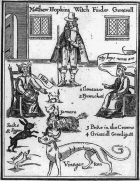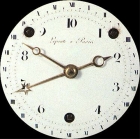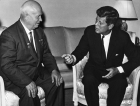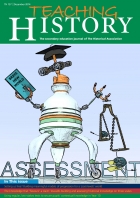Progression & Assessment
Progression and Assessment (Key Stage 3): Progression simply means ‘getting better’. History teachers need models of what progression in history looks like but many contrasting models exist and lively debates continue. All history teachers therefore need to know enough to understand those debates and join them. History teachers and history education researchers have traditions of defining and testing goals for students, debating how far these should relate to substantive knowledge and/or disciplinary thinking, researching typical routes pupils take towards them and working out optimal paths to help them get there more securely. Read more
Sort by:
Date (Newest first) | Title A-Z
Show:
All |
Articles |
Podcasts |
Multipage Articles
-

No more mark schemes: manageable and meaningful assessment for Years 7–9
ArticleClick to view -

Rescuing assessment from ‘knowledge-rich gone wrong’
ArticleClick to view -

Creating a progression model for teaching historical perspectives in Key Stage 3
ArticleClick to view -

‘Weaving’ knowledge
ArticleClick to view -

Here ends the lesson: shaping lesson conclusions
ArticleClick to view -

Myths and Monty Python: using the witch-hunts to introduce students to significance
ArticleClick to view -

Designing end-of-year exams: trials and tribulations
ArticleClick to view -

Triumphs Show 167: Keeping the 1960s complicated
ArticleClick to view -

Cunning Plan 167: teaching the industrial revolution
ArticleClick to view -

Why are you wearing a watch? Complicating narratives of economic and social progress
ArticleClick to view -

Effective essay introductions
ArticleClick to view -

Making rigour a departmental reality
ArticleClick to view -

Taking control of assessment
ArticleClick to view -

Developing independent learning with Year 7
ArticleClick to view -

Cunning Plan 162: Transferring knowledge from Key Stage 3 to 4
ArticleClick to view -

Adventures in assessment
ArticleClick to view -

Assessment Without Levels
ArticleClick to view -

Pipes's punctuation and making complex historical claims
ArticleClick to view -

Do's and Dont's in developing assessment practice
ArticleClick to view -

Teaching History 157: Assessment
ArticleClick to view

